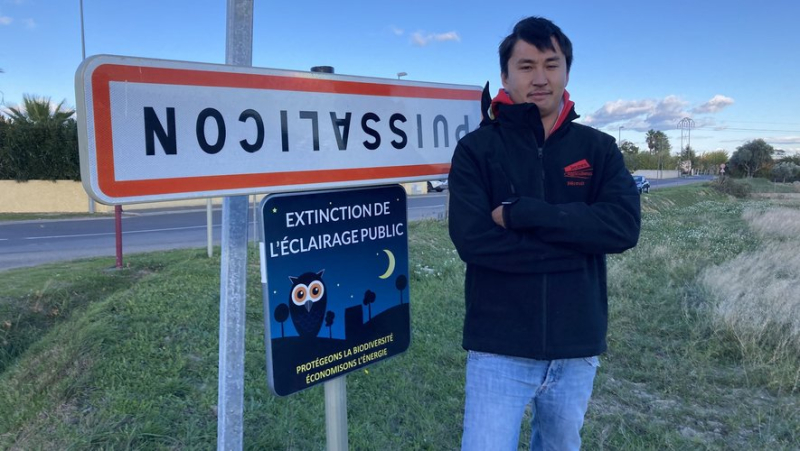Benjamin Boillat-Rami, president of the Young Farmers of Hérault: “It’s a cry of dismay, of anger”

Benjamin Boillat-Rami: “We have moved up a notch in the balance of power”. Midi Libre – Caroline Gaillard
The farmers were received on Monday in the Hérault prefecture. Benjamin Boillat-Rami, winegrower in Puissalicon and representative of Young Farmers, was present at this meeting. He explains to us the challenges of mobilization.
Is this mobilization of farmers different from the previous ones ?
There we have moved up a notch in the balance of power because the farmers are dying. We want to work in peace, with a decent income. We can no longer stand the administrative procedures and environmental standards imposed by the government. We respect them, but they are not respected by our competitors. We reiterated concrete requests to the prefect of Hérault: for example, that the "diffuse pollution fee", that we pay on phytosanitary products, be redistributed to farmers. But for the moment we have no answer.
You denounce administrative burdens, can you give a concrete illustration ?
I am thinking of a winegrower in Biterrois who is requesting an irrigation file in order to install a drip irrigation system in his vines. The cost depends on many parameters but let's say that if the operation is carried out by a service provider, it takes 3,000 euros per hectare, which gives the right to aid of 1,250 euros for each irrigated hectare. To do this, you must make a "paper" with quotes: there are around twenty pages, and you have no room for error. We then send this file to the Departmental Directorate of Territories and the Sea, which controls it and validates it, but it’s not finished. It must then be sent back to FranceAgriMer, which is another organization. They look to see if it’s full, once again. This process can take six months to a year and a half, depending on the instructors. If your application is accepted, you will only receive the aid at the end of the work, but not immediately: here again there is often a few months delay.
What are the consequences for the farmers of the department ?
All these constraints weigh on our production, and therefore on our income. Not to mention the risks brought by climate change. For example, I have been based in Puissalicon since 2015, on my parents' farm. This is a sector that is still not irrigated where theoretically I could achieve a yield of eighty hectoliters per hectare: these last harvests I only did twenty-eight, or a third, at cause of drought. We are waiting for the construction of a winter reservoir to collect the rain but this time it is associations which are filing appeals, and we are only at the consultation stage.
Fewer and fewer farmers in Hérault
According to the Regional Directorate of Food, Agriculture and Forestry (DRAAF), Hérault had around 7,900 agricultural operations in 2020, compared to nearly 10,000 in 2010, a drop of 21% in ten years. 80% of these farms are specialized in viticulture, but arboriculture and other permanent crops are even more affected by this erosion. "Today, we are fallen to 7,500 farms, perhaps less, estimates Benjamin Boillat-Rami, while in five years, half of farmers will retire. With the obstacles faced by young people who want to settle, we will not be able to fill this deficit, and we will not be able to achieve the objective of food sovereignty.
And for the young farmers that you represent, what impact ?
The main consequence is that they give up on settling down. Each year in the department, we welcome around 700 project leaders. In 2022, 70 have gone all the way, obtaining installation assistance…hellip; In 2023, there were only 50 left. The risk is to arrive at a situation like that experienced by Aude last year. ;: zero installation.
What has happened since Monday's meeting at the prefecture ?
We have scheduled this mobilization for Friday morning in Montpellier, with a filter dam at the Saint-Jean-de-Védas tollbooth. All the unions are in contact, and we see that Occitanie is very much at the forefront of this movement. The reason is simple: we are the region of France where agricultural income is the lowest, below 20,000 euros per year. It’s a cry of dismay, of anger. After that I don't know what can happen…
I subscribe to read more




